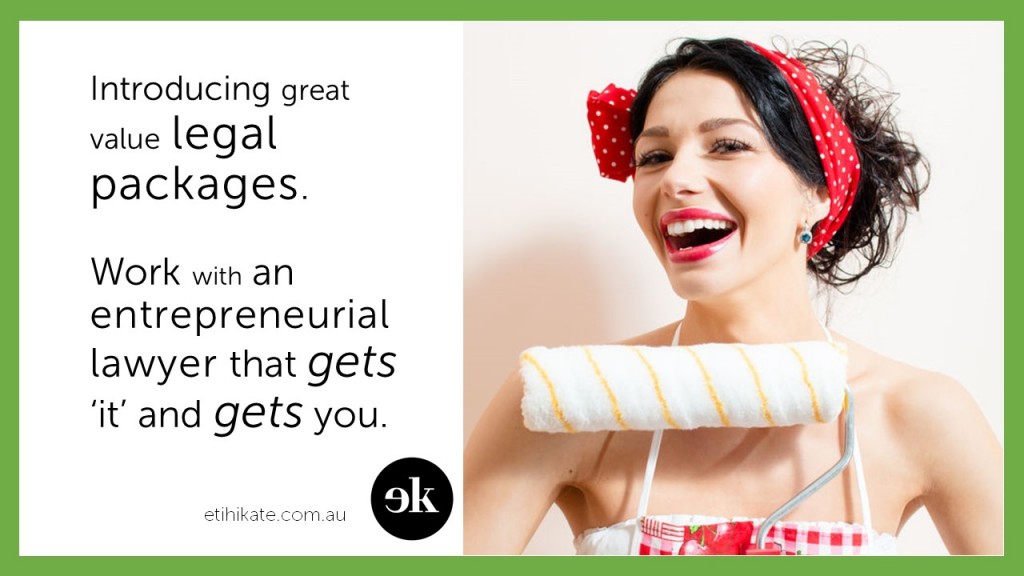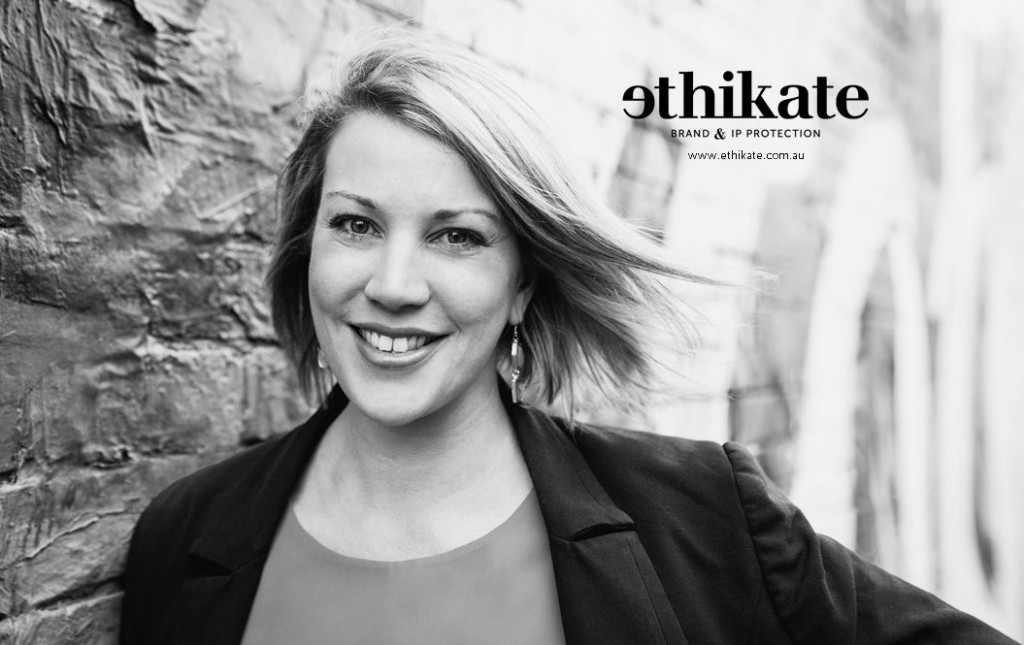By Kate Ritchie, Ethikate Principal Lawyer and Trade Marks Attorney
For an entrepreneur, suspected idea theft is the stuff of nightmares. However, business owners need to keep a cool head in the face of an alleged IP breach to avoid being sued and further damaging their reputation and brand.
Whether revealed via a social media search, at a trade fair, or reported by confused and loyal customers, discovering that someone is using similar branding or has a product on the market that is almost identical to your own can be a heartbreaking experience.
When faced with assumed Intellectual Property infringement, it can be tempting to immediately get on social media in the heat of the moment and have a good old rant about the situation. However, by doing so entrepreneurs risk making grossly incorrect legal statements about the alleged infringer, which is potentially damaging to their brand’s reputation. If the suspected infringement isn’t actually a breach, it could also open the accuser up to being sued for misleading or deceptive conduct under Australian Consumer Law, or even defamation.
A high profile example of this is the case of Seafolly Pty Ltd v Madden [2012] FCA 1346 (29 November 2012). Swimwear designer Leah Madden, trading as White Sands, reportedly posted a succession of Facebook posts and sent emails to reporters accusing Seafolly of plagiarism.
Seafolly then sued Ms Madden on the grounds of misleading and deceptive conduct and false representations; injurious falsehood; and copyright infringement. In 2012, it was reported that Ms Madden was found guilty of engaging in misleading and deceptive conduct and was ordered to pay Seafolly $25,000.
As hard as it may be, it’s important that entrepreneurs take a breath in the face of a suspected IP breach and never make public comment about the situation. It’s also important to avoid contacting the alleged infringer directly.
The reality is that it’s not always easy to prove an Intellectual Property infringement. Enforcement bodies look at a range of factors when determining if a breach has occurred. In the case of a trade mark, this includes examining what protections are in place, whether the trade mark is registered and where and the scope of that protection. If there isn’t any formal protection in place, enforcement bodies can also look at things such as prior use and whether there is significant goodwill and reputation built over several years that would lead people to instantly connect you as the source of the brand. Other considerations include whether the trade marks are deceptively similar and whether there is evidence of that deceptive similarity. For example, would customers get confused by the similarity? Would they get the names mixed up? Would they assume the trade marks are related? Have there been phone calls to the wrong business because of the similarity or has work been diverted because of confusion?
Proving IP infringement is not always a clear cut process. Getting plain English advice from a specialist IP lawyer who cares about your business but has a healthy level of objectivity about the matter is a great first step in the face of a suspected breach.
Engaging a specialist from the beginning to not only register a trade mark, but to put a wider brand protection strategy in place for your business can also help you to be more informed about the process and to avoid the heartache and financial losses involved with an alleged infringement.
Ethikate offers a range of affordable packages specifically designed for startup founders and small businesses, including our $199 Initial Consult package. If you have any questions about Intellectual Property, Trade Marks and Brand Protection, feel free to get in touch. We’d love to hear from you!
About Kate Ritchie
Kate Ritchie is a strategically focused Principal Lawyer and Trade Marks Attorney with both commercial and business services and legal experience. Kate has broad ranging competency in all aspects of legal services including intellectual property law, brand protection, commercial and business transactions, negotiation and alternative dispute resolution, internet law, privacy, competition and consumer law and sports law. Kate has worked with top tier commercial law firms such as Clayton Utz and high profile companies such as Thiess Pty Ltd and Tatts Group. Kate founded Ethikate in 2014 with a passion for providing specialist advice and services in Intellectual Property Law, Trade Marks and Brand Protection Strategies, business and commercial law and entertainment and media law for startups, entrepreneurs and small to medium businesses. For more information visit www.ethikate.com.au.
A similar version of this article is also available on the Kochie Business Builder’s website here.



![{"total_effects_actions":0,"total_draw_time":0,"layers_used":0,"effects_tried":0,"total_draw_actions":0,"total_editor_actions":{"border":0,"frame":0,"mask":0,"lensflare":0,"clipart":0,"text":1,"square_fit":0,"shape_mask":0,"callout":0},"effects_applied":0,"uid":"A2B43B4F-C3EA-40E5-AF60-1C6EA4502F77_1465589259848","sources":[],"photos_added":0,"total_effects_time":0,"tools_used":{"tilt_shift":0,"resize":0,"adjust":0,"curves":0,"motion":0,"perspective":0,"clone":0,"crop":0,"enhance":0,"selection":0,"free_crop":0,"flip_rotate":0,"shape_crop":0,"stretch":0},"source":"editor","width":2896,"origin":"collage","height":2896,"total_editor_time":68181,"brushes_used":0}](https://www.ethikate.com.au/wp-content/uploads/20160610_201802000_iOS-1024x1024.jpg)

 Ethikate’s Principal Lawyer & Trade Marks Attorney Kate Hamer is thrilled to be speaking at this year’s Collins & Co Not-For-Profit Conference in Melbourne on Friday 29 May.
Ethikate’s Principal Lawyer & Trade Marks Attorney Kate Hamer is thrilled to be speaking at this year’s Collins & Co Not-For-Profit Conference in Melbourne on Friday 29 May. You want to have as much information as possible before you speak to a professional. Or maybe you feel totally unsure and want to know a little bit more about brand protection and the trade mark registration process.
You want to have as much information as possible before you speak to a professional. Or maybe you feel totally unsure and want to know a little bit more about brand protection and the trade mark registration process.




